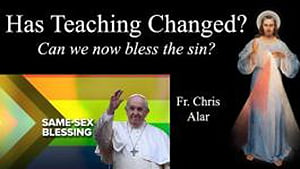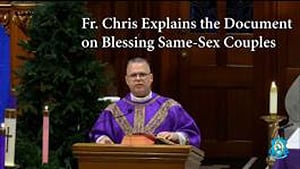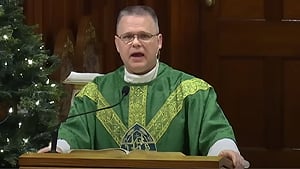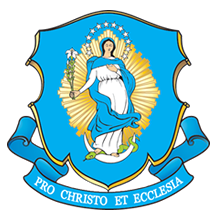
Fiducia Supplicans (“On the Pastoral Meaning of Blessings”): What does it mean?



The declaration Fiducia Supplicans (“On the Pastoral Meaning of Blessings”), issued on Dec. 18 by the Vatican Dicastery for the Doctrine of the Faith (DDF), has caused much confusion and raised many questions in regard to offering blessings to same-sex couples.
Here’s what you need to know.
The nature of marriage between a man and a woman has not changed.
Fiducia Supplicans states clearly that “the Church’s perennial teaching on marriage” is unchanged.
In fact, the March 15, 2021 Responsum issued by the then-Congregation for the Doctrine of the Faith had already confirmed this: “The declaration of the unlawfulness of blessings of unions between persons of the same sex is ... a reminder of the truth of the liturgical rite and of the very nature of the sacramentals.”
Can a priest or deacon offer a blessing to a same-sex couple?
No. The intention of any blessing is to invite God’s grace to turn away from sin and strive for greater holiness. The priest or deacon can bless each individual, but not validate their civil union or marriage.
On Jan. 4, Cardinal Víctor Manuel Fernández, DDF prefect, clarified the declaration by offering a sample blessing: “Lord, look at these children of yours, grant them health, work, peace, and mutual help. Free them from everything that contradicts your Gospel and allow them to live according to your will. Amen.”
What is the position of the Marian Fathers?
On Dec. 21, the Very Rev. Chris Alar, MIC, provincial superior, issued a formal statement:
“Marian clergy (ordained deacons and/or priests) are prohibited from blessing irregular relationships, unions, or same-sex couples in the United States and Argentina, or while traveling abroad. This applies to all Marian clergy regardless of diocesan policies. We see no situation in which such a blessing of a couple could be properly and adequately distinguished from some level of approval of the irregular relationship, leading to the scandal of the faithful.
“It needs to be emphasized, however, that blessing individual persons struggling with sin, but striving to do the will of God and conform their lives to Church teaching, are not only allowed, but strongly encouraged. Marian clergy will continue to bless the individual sinner, but we cannot in any way bestow blessings that may infer that we are condoning or blessing the sin of irregular unions.”
On Dec. 22, the Most Rev. Joseph Roesch, MIC, superior general of the Marian Congregation, issued a statement from Rome. He explained:
The Declaration states many times that the proposed pastoral blessing should not be confused with a blessing of a union which resembles marriage. However, the very act of blessing a couple in an irregular union during a pilgrimage or while visiting a shrine could cause that type of confusion rather than avoiding it. The Declaration states that the pastoral blessings can be seen as a type of evangelization calling the couple to live with greater faithfulness.
There is a danger that those seeking the blessing could see it as a permission to continue to live in sin with the blessing of the Church. When a priest gives a blessing, he doesn’t simply represent himself, he represents the Church. The Catechism of the Catholic Church states unequivocally: “‘homosexual acts are intrinsically disordered’. They are contrary to the natural law. They close the sexual act to the gift of life. They do not proceed from a genuine affective and sexual complementarity. Under no circumstances can they be approved” (CCC 2357). This is the constant teaching of the Church, from the oldest biblical texts, through the New Testament and the teaching of the Church Fathers to the quoted documents of two years ago.















